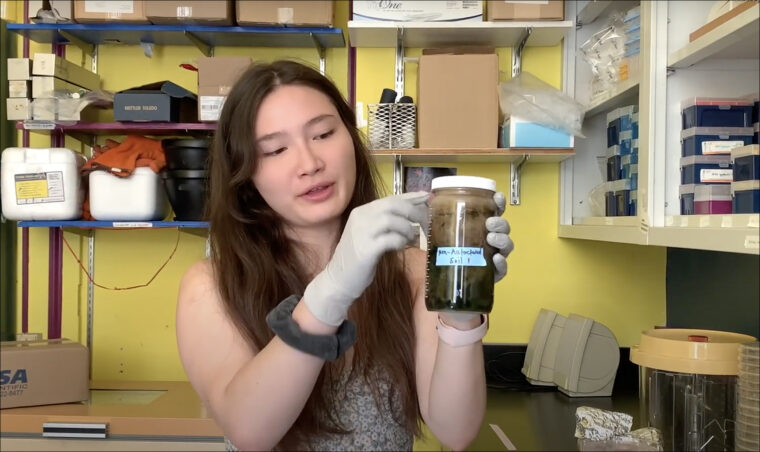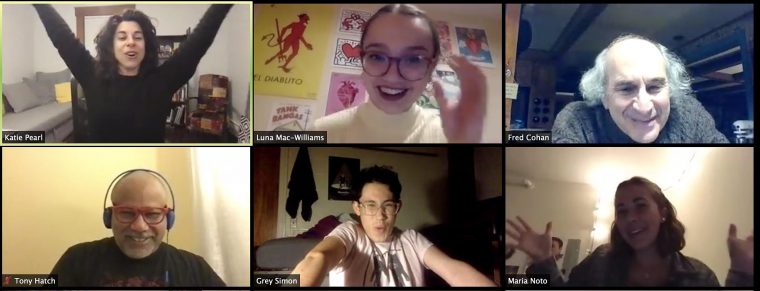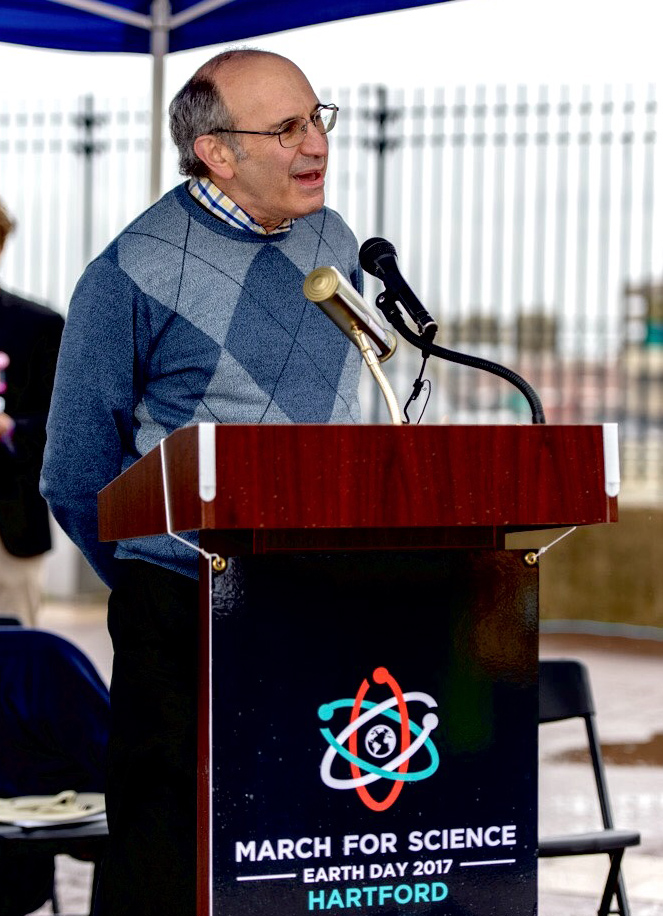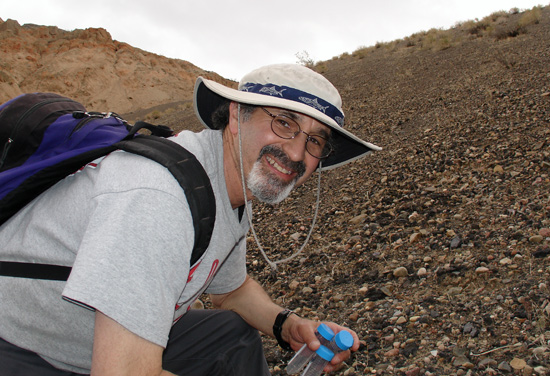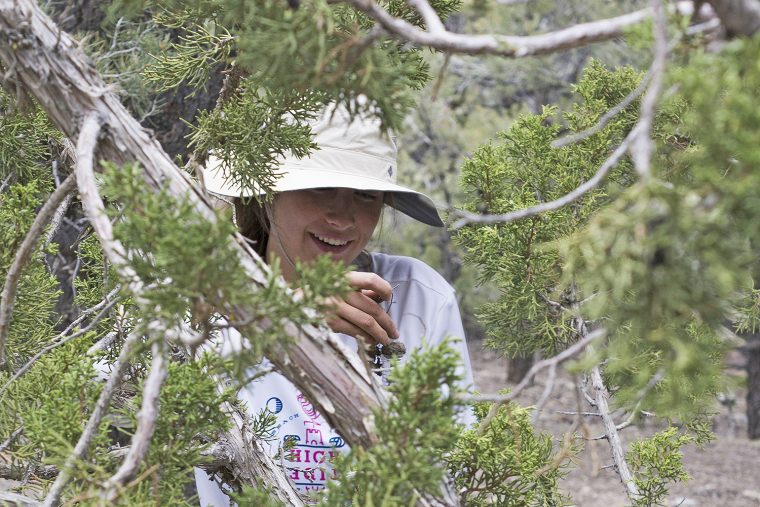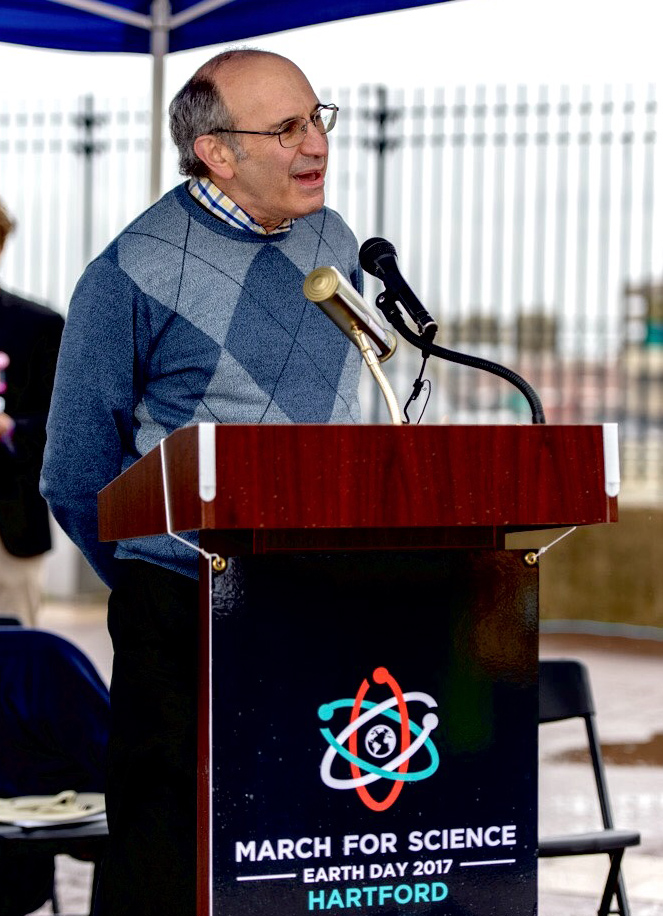A team of researchers at Wesleyan has discovered new strains of bacteria—located on the University's campus—that may have the ability to break down microplastics and aid in the world's ongoing plastic waste crisis. Microplastics, which measure less than .20 of an inch, enter the ecosystem— and our bodies— largely through the abrasion of larger plastic pieces dumped into the environment. According to a study published in the Journal of Environmental Science and Technology, the average person consumes at least 50,000 particles of microplastic a year and inhales a similar quantity. "Plastic is typically classified as a non-biodegradable substance. However, some…
As part of the BIO 173: Global Change and Infectious Disease course, Professor Fred Cohan assigns students to write an essay persuading others to prevent future and mitigate present infectious diseases. If students submit their essay to a news outlet—and it's published—Cohan awards them with extra credit. As a result of this assignment, more than 25 students have had their work published in newspapers across the United States. Many of these essays cite and applaud the University's Keep Wes Safe campaign and its COVID-19 testing protocols. Cohan, professor of biology and Huffington Foundation Professor in the College of the Environment…
Reserve your spot for a SLABBER performance here.
Frederick Cohan, the Huffington Foundation Professor in the College of the Environment, professor of biology, is a microbial ecologist whose course “Global Change and Infectious Disease” examines how human disturbance of the environment contributes to infectious disease outbreaks. He also researches the origins of diversity among both bacteria and viruses. In early February, as the novel coronavirus was beginning to spread, Cohan wrote an article in The Conversation, co-authored with PhD candidate Kathleen Sagarin and Kelly Mei ’20, titled, “A Clue to Stopping Coronavirus: Knowing How Viruses Adapt From Animals to Humans.” Cohan also was interviewed recently by The Wesleyan…
Wesleyan in the News 1. The Open Mind: "Democratizing the Jury" Associate Professor of Government Sonali Chakravarti is interviewed in connection with her new book, Radical Enfranchisement in the Jury Room and Public Life, in which she offers a "full-throated defense of juries as a democratic institution." "I am very interested in how ordinary people engage with political institutions, and juries are the place where ordinary people have the most power," she says. Chakravarti calls for more robust civic education, continuing into adulthood, in order to have a "more effective, modern jury system." 2. Hartford Courant: "Sen. Murphy, Aiming to…
Wesleyan in the News 1. Hartford Courant: "Jeanine Basinger, the 'Professor of Hollywood,' Is Wesleyan University's Homegrown Screen Legend" Corwin-Fuller Professor of Film Studies, Emerita Jeanine Basinger, whom this article notes has been dubbed “the professor of Hollywood” and “an iconic figure in American cinema, one of the most beloved and respected film history professors in the history of film studies” by The Hollywood Reporter, is interviewed on the occasion of her 60th year at Wesleyan, and the 50th since she created its film program. She talks about her next book on American film comedy, shares some of her favorite things,…
Wesleyan faculty frequently publish articles based on their scholarship in The Conversation US, a nonprofit news organization with the tagline “Academic rigor, journalistic flair.” In this article, Fred Cohan, professor of biology, Huffington Foundation Professor in the College of the Environment, PhD student Kathleen Sagarin, and Kelly Mei ’20 explain how viruses like coronavirus—and several others over history—spread from animals to humans, what determines the size of the outbreak, and how behavioral modifications and technology can stop the spread. A clue to stopping coronavirus: Knowing how viruses adapt from animals to humans As the novel coronavirus death toll mounts, it is…
In this recurring feature in The Wesleyan Connection, we highlight some of the latest news stories about Wesleyan and our alumni. Wesleyan in the News CNN: "What the ‘Woke Student’ and the ‘Welfare Queen’ Have in Common" "Every age seems to need a bogeyman, some negative image against which good people measure themselves," writes President Michael Roth '78 in this op-ed. Roth compares today's bogeyman, the "woke" college student, with those of past eras—the "welfare queen" and "dirty hippie"—and seeks to build understanding and dispel negative misperceptions of activist college students. "The images of the welfare queen and of the woke…
In this recurring feature in The Wesleyan Connection, we highlight some of the latest news stories about Wesleyan and our alumni. Recent Wesleyan News 1. Los Angeles Times: "As the World Warms, Deadly and Disfiguring Tropical Diseases Are Inching Their Way Toward the U.S." In this op-ed, Professor of Biology Frederick Cohan and Isaac Klimasmith '20, both in the College of the Environment, write that infectious disease is a growing threat, resulting from climate change, that humans may find hard to ignore. Cohan is also professor, environmental studies and professor, integrative sciences. 2. Hartford Courant: "Trump's Immoral Response to Climate Report" Gary Yohe, the…
This spring, a research team from Wesleyan traveled to Death Valley National Park to explore the ways bacteria diversifies in extreme environments. Death Valley, located about 130 miles west of Las Vegas, is a below-sea-level basin known for being the hottest place on earth and driest place in North America. The average rainfall is less than 2 inches, annually. "National parks are ideal for research, in general, because the land is protected indefinitely from commercial development," said team leader Fred Cohan, professor of biology, professor of environmental studies. "Death Valley is a nice model system for exobiology because of its extreme…
Numerous Wesleyan faculty and students in the sciences attended the March for Science in different parts of the state and country on Earth Day, April 22. Laura Grabel, the Lauren B. Dachs Professor of Science and Society, professor of biology, professor of environmental studies, professor of feminist, gender and sexuality studies, spoke at the New Haven march. "I decided to march because science is being seriously threatened by the Trump administration," she explained. "Trump has not filled almost all of the science positions, has no science advisor, and is using little evidence-based thinking in his decision making. Some of his appointments are puzzling and…
Frederick Cohan, professor of biology, professor of environmental studies, has recently been elected to the Connecticut Academy of Science and Engineering (CASE). Set to be inducted during the 42nd Annual Meeting and Dinner on May 22, 2017, Cohan will join 23 others as “Connecticut’s leading experts in science, technology, and engineering,” and the academy’s newest members during their ceremony at the University of Connecticut. In line with CASE’s mission to honor those “on the basis of scientific and engineering distinction, achieved through significant contributions in theory or application,” Cohan’s work has led to the “development of a comprehensive new theory…


